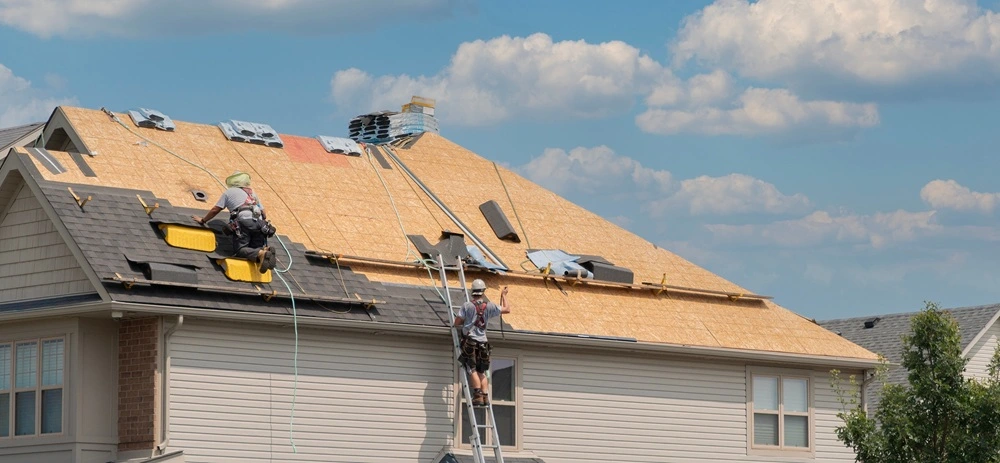In Tennessee, asphalt shingle roofs typically cost between $8,500-$15,000 for an average home, while metal roofs range from $18,000-$40,000 initially. As Middle Tennessee's roof replacement specialists, we've helped thousands of homeowners like you navigate this decision. Below, you’ll get a breakdown of the costs, long-term value, and factors that influence pricing for metal and shingle roofing, helping you make an informed investment in your home’s future.
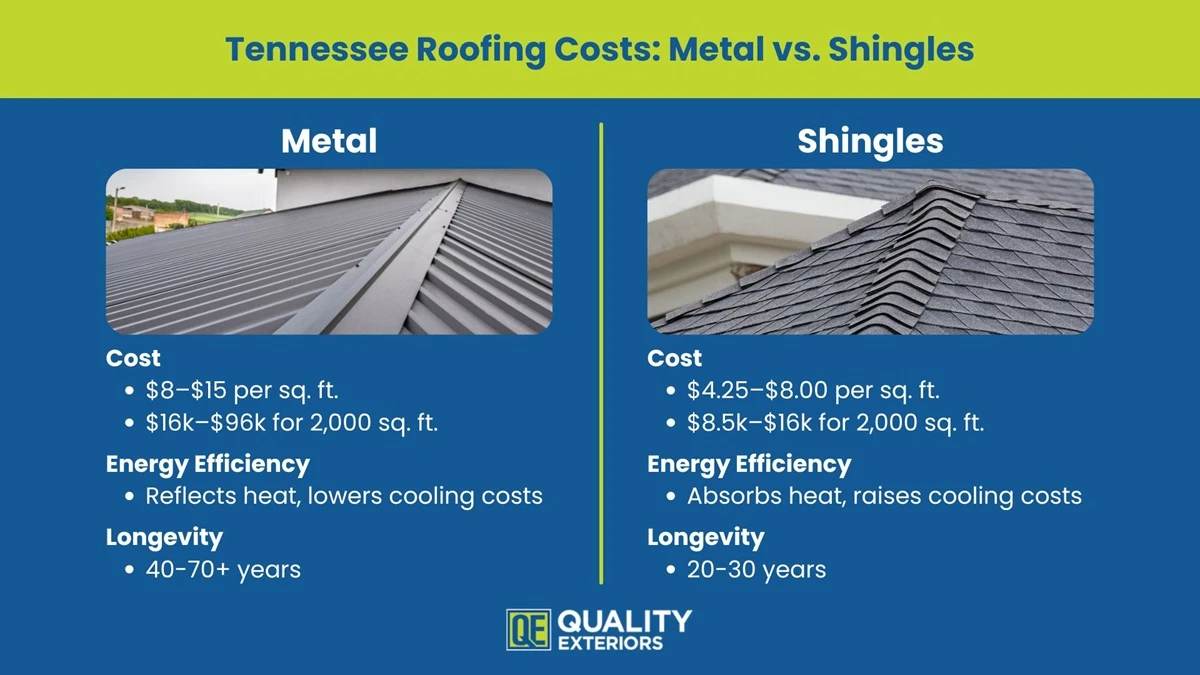
Local Tennessee Cost Overview: Your Roofing Options
Tennessee’s climate demands durable roofing. While metal and shingle roofs vary in upfront cost, consider the installation cost, energy efficiency, and long-term maintenance.
How Much Do Asphalt Shingles Cost?
Asphalt shingles remain the most popular roofing material in Tennessee due to their proven performance and affordability. There are several types of asphalt shingle roofs to choose from, each offering different levels of protection and aesthetic appeal.
Traditional asphalt shingles offer excellent value for homeowners seeking reliable protection without the higher initial cost of other roofing materials. Asphalt shingle installation typically takes 2-4 days, making it a faster option than metal roofing systems. The lower cost per square foot of asphalt shingles makes this roofing attractive to budget-conscious homeowners who need quality protection.
How Much Does a Metal Roof Cost?
Metal roofing systems represent a premium investment with exceptional durability and energy efficiency. Different types of metal roofs offer varying price points and performance characteristics suited to Tennessee's extreme weather conditions.
The overall metal roof’s cost reflects the premium materials and specialized installation process required. Metal shingles offer a compromise between traditional appearance and metal durability. The higher upfront cost of metal roofing stems from both material costs and the specialized skills required for a proper metal roof installation.
Why Does a Metal Roof Cost More?
The higher upfront cost of metal roofing stems from several factors that contribute to superior long-term performance. Understanding these cost drivers helps explain the investment difference between metal and shingle roofs.
- Premium materials: Metal roofs use high-grade steel, aluminum, or copper, which cost more than asphalt shingles.
- Specialized skills: Installation requires trained professionals, making labor costs higher compared to traditional roofing.
- Complex installation: Metal systems, like standing seam or shingles, need precise installation, extending project time.
- Advanced manufacturing: Metal roofs are made using sophisticated processes and recyclable materials.
- Superior performance: They offer exceptional weather resistance and energy efficiency, making the investment worthwhile over time.
The initial cost difference reflects the quality and longevity built into metal roofing systems. While asphalt shingles are cheaper initially, they require more frequent repairs and earlier replacement, affecting long-term value.
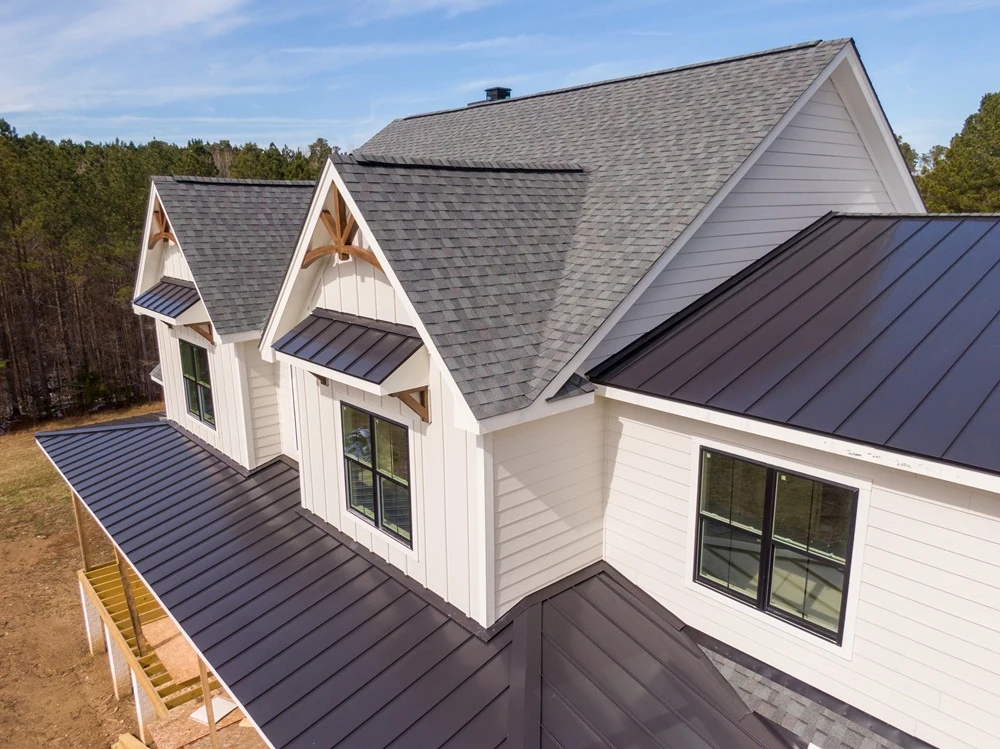
Key Cost Factors for Both Roofing Materials
Several factors affect the final price of both metal and shingle roofs, including roof complexity and local labor rates. Understanding these helps homeowners budget and make informed decisions.
Size of Roof
Roof size directly impacts material costs and installation time for both roofing options. Larger roofs require more materials and labor, while roof pitch affects the complexity and safety requirements of the installation process. Square foot calculations determine total material needs for your specific project.
Steep roof pitch increases installation costs by 15-30% for both materials due to specialized safety equipment and slower work pace. Complex roof designs with multiple valleys and dormers add additional labor costs and material waste.
Style and Material Cost
Roof style impacts material use and installation complexity. Simple gable roofs cost less, while complex designs with multiple levels and valleys require custom work. Standing seam metal roofs need precise measurements and custom fabrication, increasing costs. Shingles adapt to complex shapes but may need extra flashing around penetrations, with architectural shingles offering more design flexibility than basic three-tabs.
Labor Costs
Installation costs vary between metal and asphalt roofs. Metal roofing requires specialized skills, with roofing contractors charging $3–$6 per square foot due to the precision needed for standing seam systems and proper fastening techniques. On the other hand, asphalt shingle installation is more straightforward, with labor costs ranging from $2–$4 per square foot, as it requires less specialized equipment and expertise.
Removal of Old Roofing
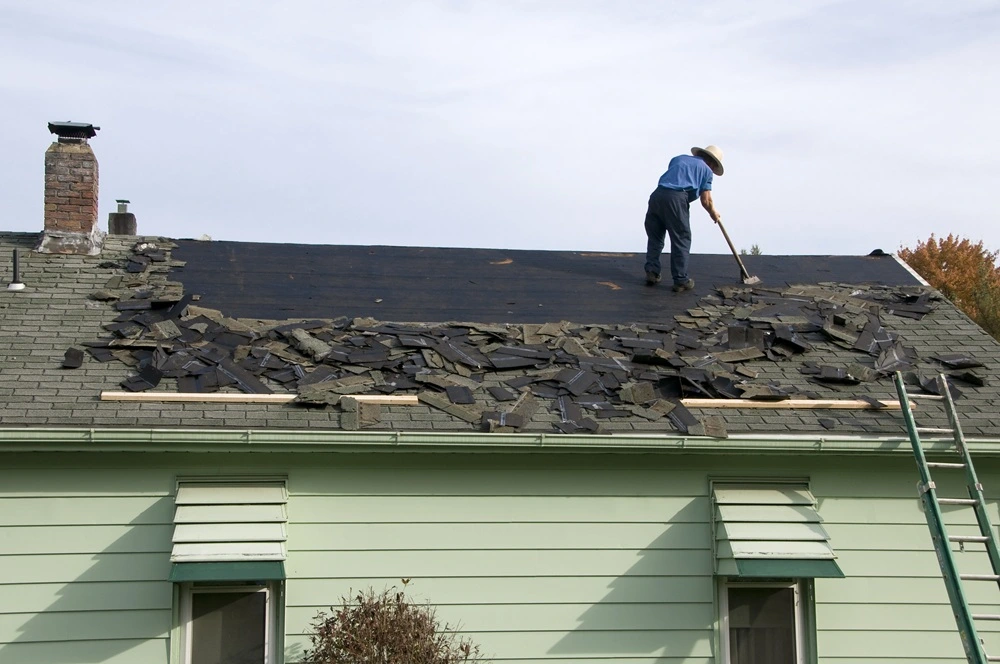
Both materials usually require the removal of existing roofing, costing $1–$3 per square foot, depending on layers and disposal. Metal roofs can sometimes go over old shingles, reducing removal costs, but a clean deck is preferred for performance and warranty. Proper disposal adds to the cost but ensures environmental responsibility.
Underlayment & Insulation
Quality underlayment protects both metal and shingle roofs from water infiltration. Metal roofs often use specialized synthetic underlayment costing $0.75-1.50 per square foot for enhanced performance.
Asphalt shingle roofs typically use standard felt or synthetic underlayment costing $0.50-1.00 per square foot. Both systems benefit from proper attic insulation to maximize energy efficiency and prevent ice dam formation.
Every home is unique, and accurate pricing requires professional assessment. Use our Roof Replacement Cost Calculator to get personalized estimates based on your roof size, pitch, and material preferences.
#cta_here
Beyond the Price Tag: Comparing Long-Term Value
The true cost comparison extends beyond initial installation to include maintenance, energy savings, and replacement frequency over decades. This analysis reveals the complete financial picture for both roofing materials and their total cost of ownership.
Understanding fewer replacements and reduced maintenance costs helps homeowners evaluate the real value proposition. Energy efficiency and cooling costs play significant roles in long-term financial benefits.
Lifespan and Durability in Tennessee's Climate
Roofing lifespan is perhaps the most significant difference between the two materials.
- Asphalt shingle roofs: When properly maintained, a well-installed architectural shingle roof has a typical lifespan of 20 to 30 years. While durable, asphalt shingles tend to be more susceptible to damage from hail, high winds, and long-term granule loss from the intense Tennessee sun.
- Metal roofs: A metal roof is a lifetime investment, lasting 40 to 70 years, or even longer. They are exceptionally resistant to wind, fire, and rot. They don't crack or erode under UV exposure, making them a formidable defense against our region's weather.
Energy Efficiency and Cooling Costs
In the middle of a hot Tennessee summer, your roof's ability to manage heat directly impacts your energy costs.
- Asphalt shingles: Traditional shingles, especially in darker colors, absorb a significant amount of solar heat, transferring it into your attic and forcing your AC to work harder.
- Metal roofs: Metal roofs are highly reflective. They reflect solar radiant heat away from your home, which can reduce cooling costs by up to 25%. This energy efficiency not only saves you money every month but also creates a more comfortable living environment.
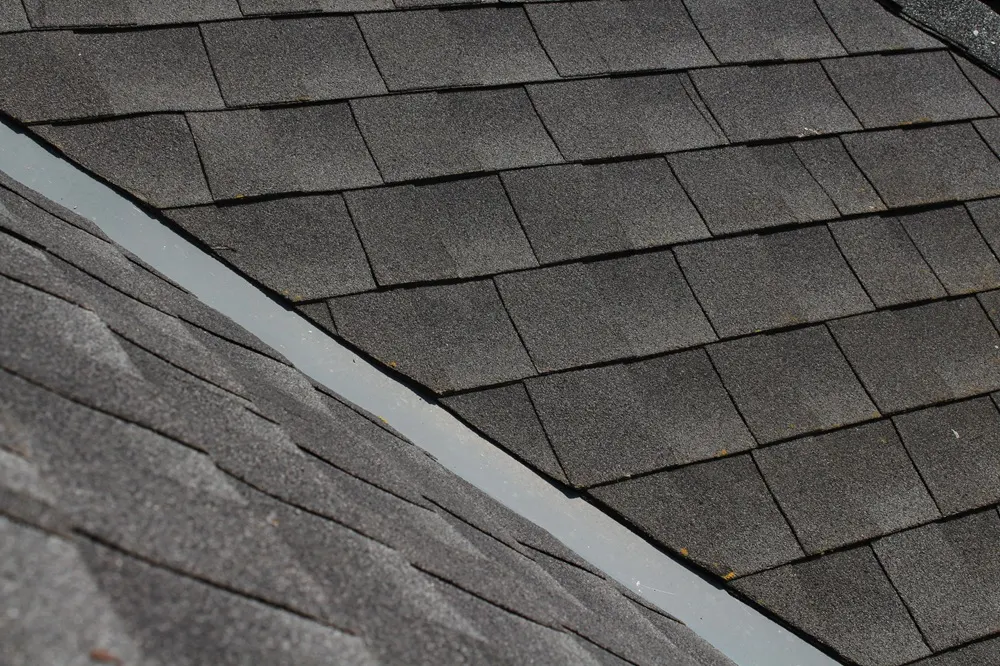
Maintenance and Repair Costs
Every roof requires some maintenance, but the needs differ greatly.
- Asphalt shingles: Shingles can be damaged by hail or wind-blown debris, potentially requiring patches or section replacements. While the cost of individual roof repairs is relatively low, the need for them can be more frequent.
- Metal roofs: Metal roofs require minimal maintenance. They should be inspected periodically to ensure fasteners are secure and sealant is intact, but they are far less likely to sustain damage from weather events that would compromise an asphalt roof.
Impact on Property Value
Both roofing materials can increase your home's resale value, but they perform differently in the real estate market. Understanding these differences helps homeowners make informed investment decisions about their roofing options.
According to the 2024 JLC Cost vs. Value Report, asphalt shingle roof replacement recoups 57% of its cost upon resale. The familiar appearance and proven performance appeal to most home buyers seeking reliable protection. Metal roofing recovers 48% initially, but the long-term benefits often justify the investment for quality-conscious buyers.
Metal vs. Shingles: Quick Comparison
Understanding the key differences helps homeowners evaluate both roofing options objectively. This comparison highlights the strengths and considerations for each material in Tennessee's climate.
Advantages of Asphalt Shingle Roofs
Asphalt shingle roofs continue to dominate the Tennessee market for several compelling reasons. These advantages make them the practical choice for many homeowners seeking quality protection at reasonable prices.
- Lower initial cost: Asphalt shingle installation is more affordable upfront, making it accessible for budget-conscious homeowners.
- Familiar installation: Most contractors are experienced with asphalt shingle installation, ensuring competitive pricing and quality work.
- Wide style selection: Architectural and composite shingles come in various colors and textures to enhance curb appeal and suit any home style.
- Proven performance: Decades of use show reliable protection against Tennessee's tough climate.
- Easy repairs: Damaged shingles can be quickly and affordably replaced.
Advantages of Metal Roofs
Metal roof advantages extend beyond initial cost considerations to provide comprehensive long-term benefits. These features explain why the popularity of metal roofing continues to grow among Tennessee homeowners.
- Superior longevity: Metal roofs last 40-70+ years, require less maintenance, and reduce long-term costs.
- Extreme weather protection: Metal roofs resist high winds, hail, and fire better than other materials in Tennessee.
- Energy savings: Reflective surfaces lead to lower cooling costs, saving on utilities over the roof's life.
- Environmental benefits: Made from recyclable materials and fully recyclable at the end of life.
- Low maintenance: Fewer repairs and replacements lower ownership costs and minimize disruption.
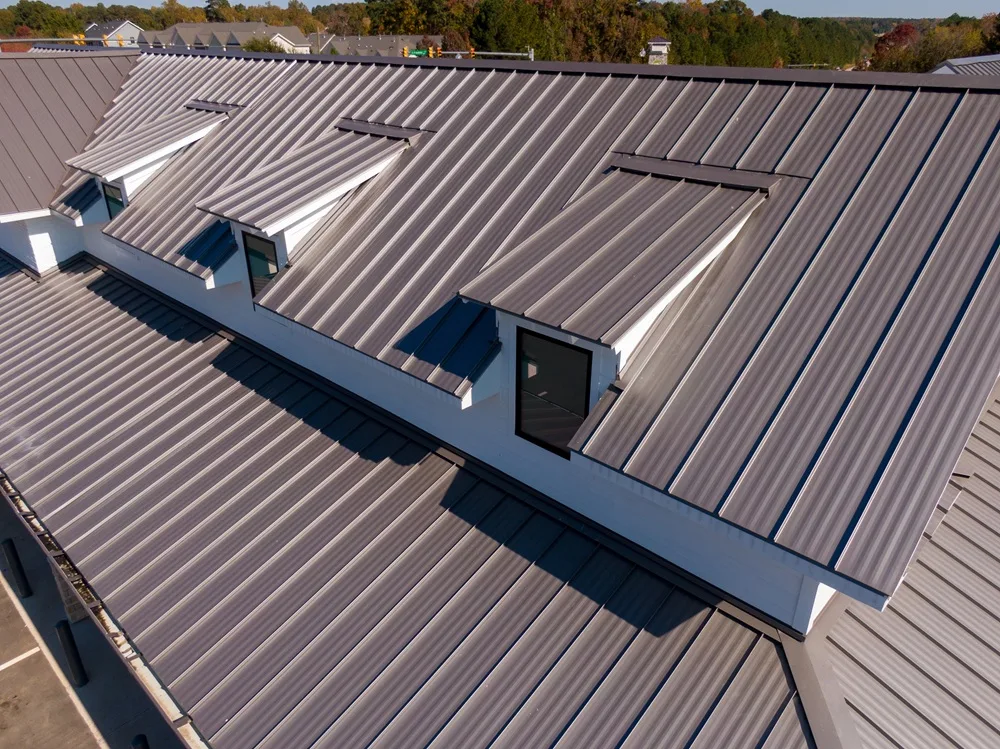
Professional Installation Matters
Quality installation determines your roof's performance regardless of material choice. Professional expertise ensures optimal results and warranty compliance for both metal and shingle roofs in Tennessee's demanding climate.
- Proper techniques: Experienced contractors follow manufacturer specs and local codes for both traditional and modern roofing systems.
- Weather resistance: Correct installation ensures maximum protection against Tennessee’s severe weather, including high winds and hail.
- Warranty protection: Professional installation preserves manufacturer warranties, safeguarding your investment for years.
- Safety standards: Licensed contractors have insurance and adhere to OSHA safety protocols during installation.
- Long-term performance: Expert installation maximizes your roof’s lifespan and reduces future repair needs.
Choosing the right contractor matters as much as selecting the right roofing material. GAF Master Elite® and GAF President's Club contractors meet the highest industry standards for quality installation and customer service.








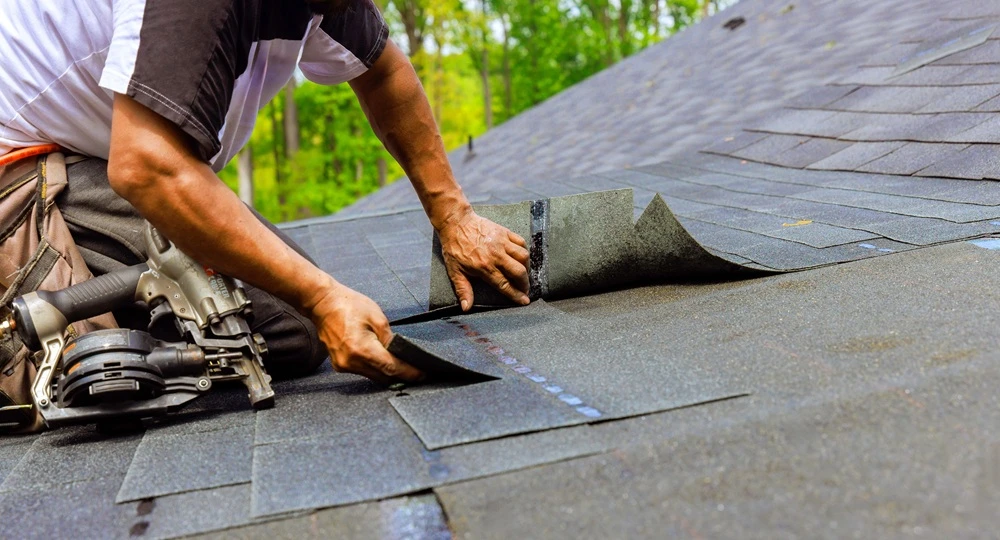
.avif)
